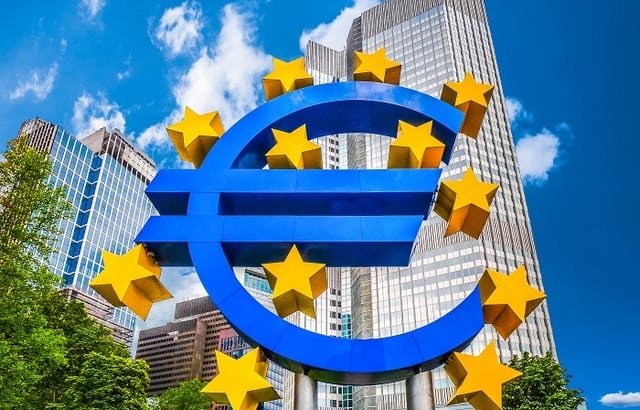Corporate debt less certain
However, Pantheon is much less certain about the prospects for corporate debt. Among other things, it notes that the ECB bond buying programme is still supporting £6bn of corporate bond purchases down just £1bn.
It adds: “The ECB has, for all intent and purposes, become the market for non-financial debt in the eurozone in the last 24 months. Additionally, if we are right and the ECB continues to buy about €6bn per month, the end of private QE will be a hard stop in Q4, unlike the gradual reduction of purchases in government bonds.”
Patel says: “It is something we have been spending a lot of time to think about. At the moment, our team struggles to differentiate between different corporates on credit quality because everything is bought up. I think once the support of the market goes away there should be more differentiation.”
Rachid Semaoune, who runs the Royal London Asset Management European Corporate Bond fund, says there are nine months of asset purchase by the ECB until 30 September, but he does not believe QE is not going to stop there.
“It will continue to taper to a lower monthly amount,” he says. “The impact on the market in credits should be gradual.”
Compressed spreads
Regarding the levels where corporate bonds trade, Seamoune notes that the investment grade market currently trades beyond fundamental value.
“By that I mean spreads are very compressed,” he adds. “They are compressed by credit rating, but if you look at how much additional spread you are being paid for a triple-B corporate compared with single-A corporates, you are only paid 27bps.
Semaoune says that extra spread of 27bps is at the tightest ever, even compared pre-financial crisis. This is a direct effect of the ECB programme and has made the maturity curve extremely flat.
“You are being paid very small extra spread to hold a 20-year corporate bond versus a 10-year corporate bond for the same entity. That is another direct effect of QE.”
He adds: “We know in an environment where there is no QE, triple-B spreads should be further from single-A spreads and longer dated bonds should trade at a higher yield or a wider spread than shorter dated bonds. The part of the market that is most at risk of further tapering of QE is longer dated euro-dated credits and the lower rated parts such as triple B.”
Semanoue is underweight longer dated euro credit, overweight in shorter-dated maturity and hopes to have an overweight in financials because he believes financials, once QE is no longer around, “are going to suffer less than non-financial corporates”.
Anjulie Rusius, deputy fund manager on the M&G gilt and fixed interest fund, and M&G index-linked bond fund is confident peripherals will outperform developed market European bonds when QE unwinds.
She explains: “Firstly, because they have been, on a relative basis, under-bought during the capital-key process. And secondly, a reversal in QE is a positive change, as it’s indicative of improvement across the eurozone. Peripherals sell-off on a risk-off, but this would be akin to a ‘risk-on’ improving global environment.”











